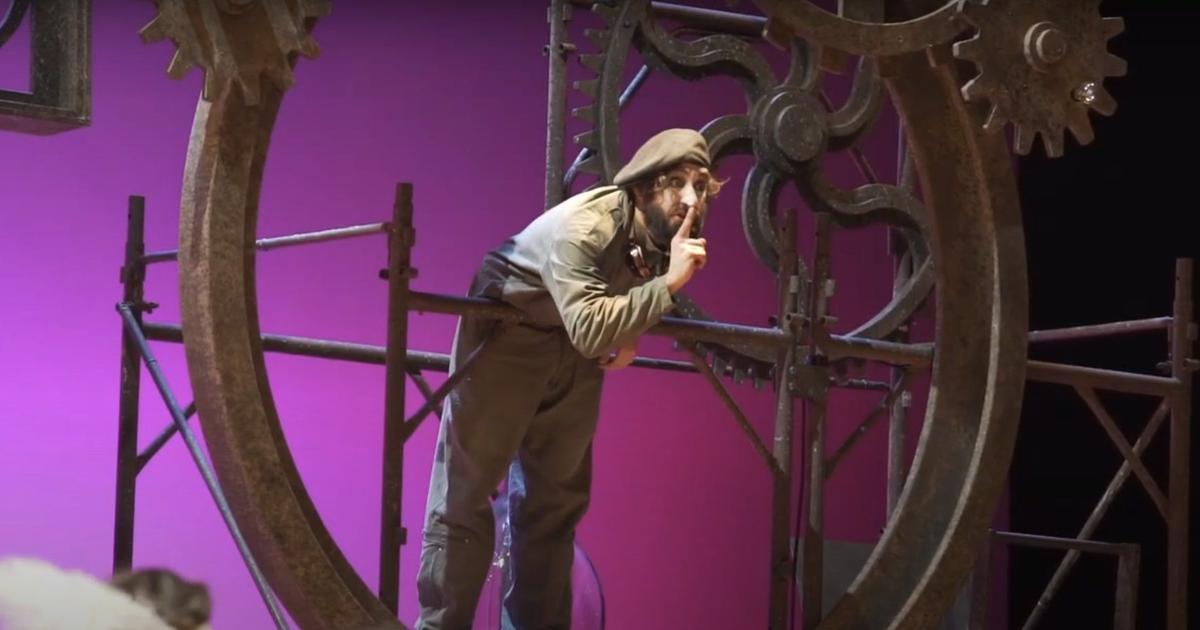Bavarian State Opera shows "Thomas": Last minutes of love
Created: 05/24/2022, 18:00
By: Markus Thiel
Mourning for the deceased partner: The great Holger Falk as Thomas dominates this performance in the Utopia, the former Munich riding hall.
© Wilfried Hösl
The Bavarian State Opera is continuing its new festival "Ja, Mai" with another disturbing borderline experience: "Thomas" by Georg Friedrich Haas and Händl Klaus is carried primarily by baritone Holger Falk.
Not only the last heavy breaths, the rattling of the lungs, the sudden silence determine these minutes in the clinic.
Also the helpless shaking of hands by the nursing staff ("It's over"), noting the time of death (August 5, 1:08 p.m.) or later the question of whether it should be a spruce coffin.
And sometimes everything can turn into the desperation of the survivor, into anger that is as close to self-pity as this man's.
With "Thomas" Georg Friedrich Haas (music) and Händl Klaus (lyrics) bring disturbingly obvious borderline experiences back to music theater.
The 100-minute film, which premiered in 2013, hits the core in a similar way to their first joint project "Bluthaus", with which the Bavarian State Opera launched its new festival "Ja, Mai".
"Thomas" is even more private and intimate.
The title hero accompanies his partner Matthias in his last minutes.
Again, the grotesqueness of a busy reality mixes with sadness and terror.
But suddenly Matthias appears, embraces Thomas in common vocal lines, and then leaves a second time.
Two Orpheus baritones meet
In Utopia, the former Munich riding hall, director Anna-Sophie Mahler and Katrin Connan (stage) ban all hospital ingredients - apart from the nursing staff in blue coats.
Videos on a huge central boulder show a throbbing, then still heart, later a cold rock.
At some point, spirits of light walk around the desperate Thomas.
Matthias steps out of the audience and later back into the light.
Otherwise, reduction, sparseness, and minimalism rule – any clinical realism would have flattened the matter down to a small TV show.
The performance does not achieve the startling urgency of "Bluthaus".
But in its concentration on the singing, acting people, on a chamber intensity, "Thomas" is also strong.
Provided you have such an exceptional actor as Holger Falk.
Falk translates the tenderness and condensed emotionality of Händl Klaus' verses into the same kind of singing.
Featuring a soft, smooth, effortlessly expanding baritone.
With great clarity and – basically the ideal case – speaking that naturally expands into singing.
Where "Bluthaus" is reminiscent of abused legendary heroines such as Elektra and Salome, "Thomas" plays à la Wagner's "Tristan" with the mystery of love death.
And so, in the scenes with Matthias, two Orpheuses meet. Konstantin Krimmel sings the friend sliding into the afterlife so finely, so enraptured in baritone sound, that not only here it becomes clear: the composer Haas is one of the last of his guild, who thinks of utopia and beauty believe in modernity.
His music, intangible in the best sense of the word, is like an amalgam.
Apparently structureless, with an imperceptibly changing flow rate, in a microtonally twisted sonority, auratic, fragile - also because the members of the Munich Chamber Orchestra with the sovereign pilot Alexandre Bloch almost exclusively play plucked instruments.
Mandolin, zither or guitar prevent flat, tangible and thus certainties.
Here, too, the imminent disappearance of the tone heralds transience.
also read
Rolling Stones guitarist Keith Richards: "Life is too interesting to die!"
Gerhard Polt live: His new piece for Munich
The piece ends with a lament by Monteverdi
Director Anna-Sophie Mahler expands her visual language – somewhat unnecessarily – into the biblical: Nurse Michael, designed by Randall Scotting with a bitterly tender countertenor, appears at the end as a winged archangel.
The undertaker is responsible for the bizarre, who approaches her customer in a suggestive way and wants to take advantage of his emotional distress.
Hélène Fauchère drives her into babble drama.
It becomes clear in the last ten minutes at the latest that Haas is following old models with the ornamentation of his vocal lines.
There "Thomas", like the previous premiere "Bluthaus", is supplemented by a work by Monteverdi as a greeting from the beginnings of music theatre.
Five soloists sing the "Lamento d'Arianna" as an unreal meditation on (wanting to) die: "Lasciate mi morire".
Loud applause, trampling and suspicion - it's quite possible that the future seasons of the State Opera will not culminate in the cuisine of the summer festival, but in a quiet, sensual, touching spring festival.









